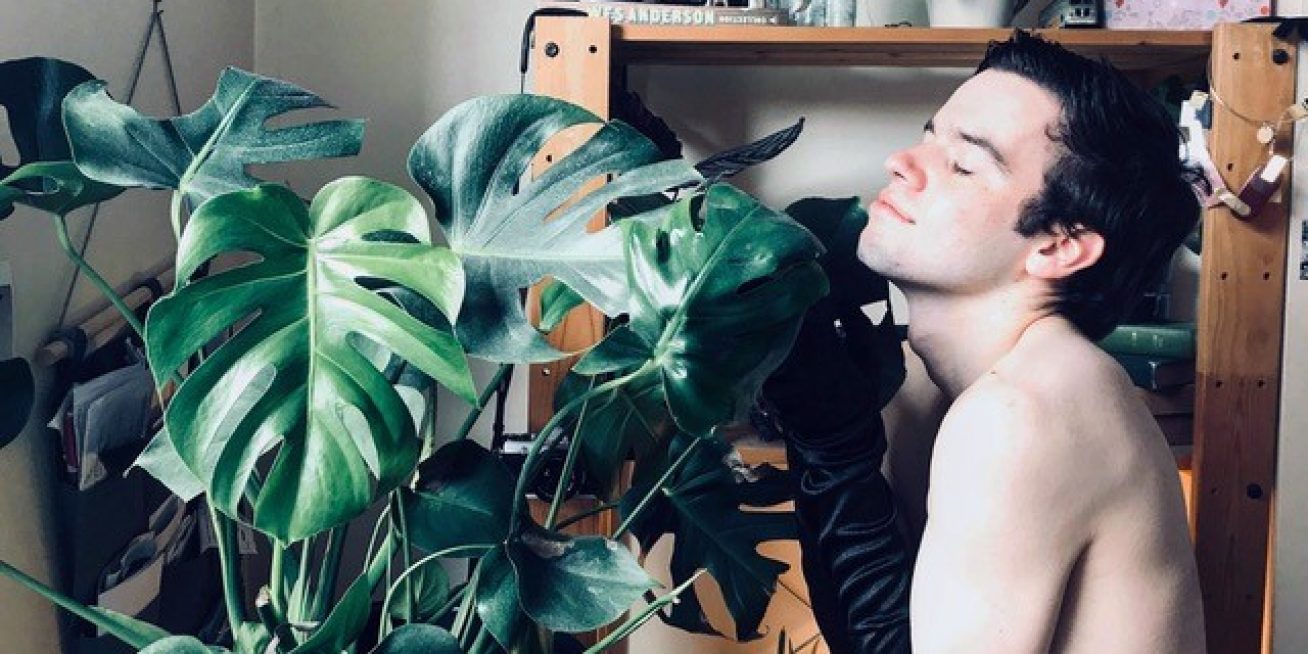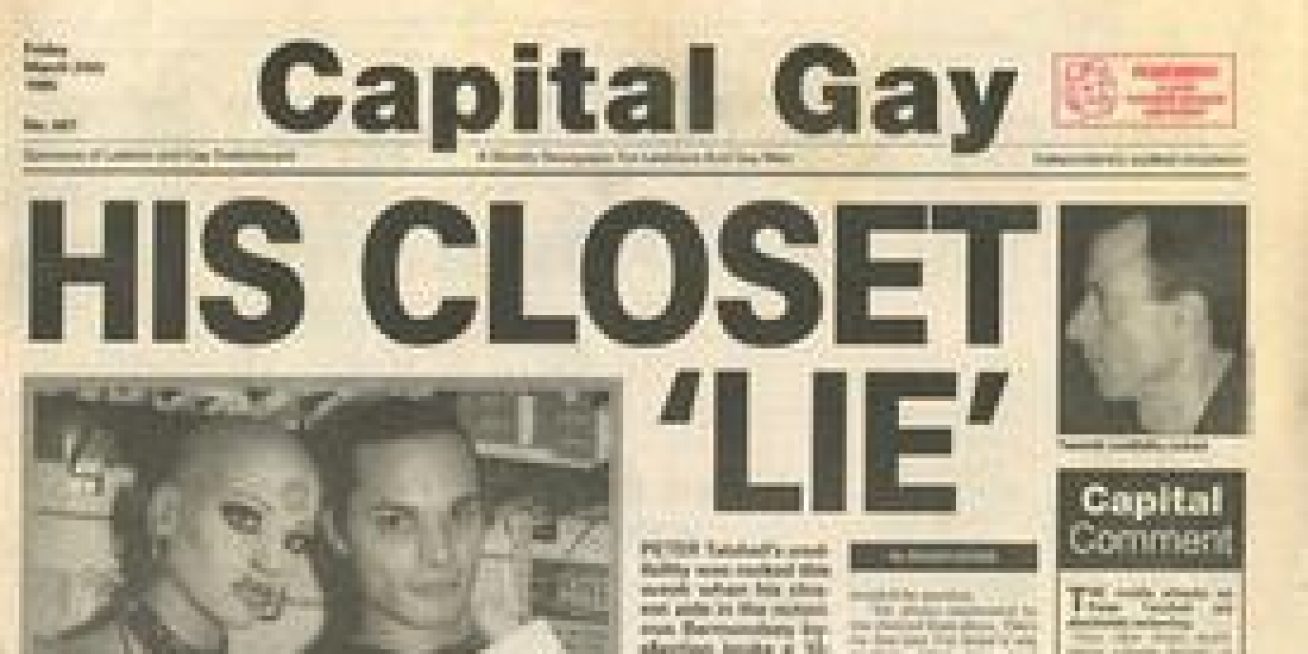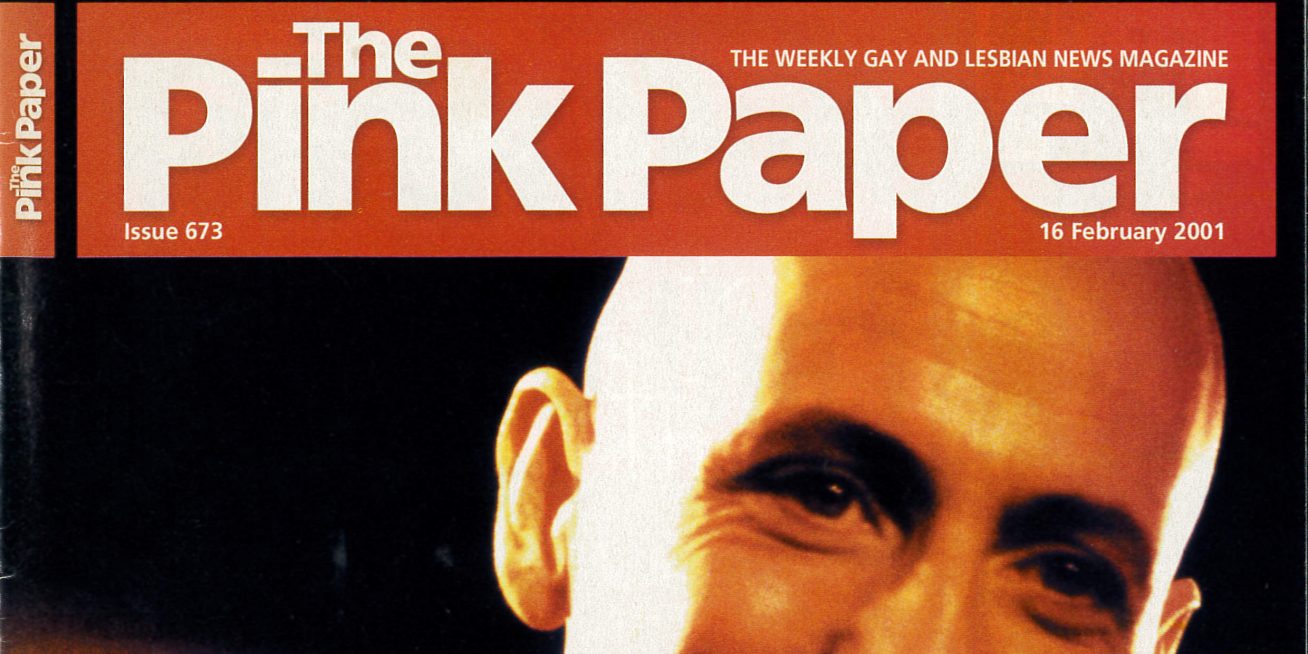Zines by Non-Binary Leeds
Leonidas outlines the creation of two zines, one encapsulating 'non-binary Leeds 2019' and another about the wider history of non-binary people.
Leonidas’s story comes from a group of interviews conducted at the International Non-Binary Day event at Leeds City Museum on 14 July 2019. The event was organised by Non-Binary Leeds. You can find out more about the group on their Facebook page and in their zine.
Image of non-binary flag shoelaces by Felicity, from NonBinary Leeds Zine 2019.
TRANSCRIPT
Leonidas AdamsInterviewed by Ben Taylor
14th July 2019
BT: Right, so, this is Ben Taylor recording for West Yorkshire Queer Stories and Non-Binary Leeds. I’m here with Leo and he’s going to talk about the zine.
LA: I am. So, I got involved with the zine because, it’s – it, it was known to many of my friends that I love zines... My friend tagged me in the post that Non-Binary Leeds made – I don’t know why I’m going into this much detail but whatever – in the post that Non-Binary Leeds made looking for like, a zine co-ordinator. And I was like, ‘wow, what a ridiculous queer job title, I want it’ [laughs] so I applied, and I, like I said in my speech, finished my application email with the phrase, ‘zines as praxis is the 2019 mode’, because it is. And I was just really, like – I remember getting the email that I got it, and I was having a really stressful time but I literally for 30 seconds like jumped around the room, cos I loved zines so much and I love non-binary people. [Pause]
And... so... the zine... We sort of discussed and decided it would be split into two zines. One which focuses on kind of like the history of non-binary people and the way that we’ve been trapped in the world and institutions, up until... the 20th century. And one which kind of encapsulates like... non-binary Leeds 2019 life... because... what we miss out a lot when we look at non-binary historical figures is that kind of like, personal connection of it, because often they’re recorded either through – and I, I’m sure Kit talked about this example – but either through like, court records, or – well, there was like, a court case involving a non-binary person and it’s how we know they’re non-binary cos they’re one of the only people in history who said, like, ‘I’m not a man or a woman’. [Pause] So that was obviously, like – all of that record was done by a cis person. Or we see it through art depicted by cis people. Like, it’s very, very rare that we see non-binary people in history depicted through a non-binary gaze, with our own gaze. And I think that was what was so important in this, in the, the modern-day zine, like the one set now or… because we wanted to give that to non-binary people in the future, we wanted them to have, like... a, a physical record that we’re here and this is what our lives are like, and we’re fighting hopefully so they can have it better in the – I don’t know, however many decades time.
But also... even the idea of creating that space for ourselves, in saying, ‘our history deserves to be valued and we deserve to be listened to and we deserve to celebrate ourselves’ ... that... is a gift really from ourselves to ourselves and wider non-binary community in Leeds, because... it’s so rare that marginalised people feel they’re allowed to take up space. Especially like, history. The idea of it is [pause]… It is an institution, and it is, like… written by the winners quote unquote... And [pause] yet it’s not seen as something we’re allowed to access, ourselves. So, making a step into that – and not, just, like taking up our own space in our own community, but pushing out to kind of, like... the wider institution of history that is not friendly to us and would rather erase our existence as it has done very successfully for millennia. And... and taking up space there... in... territory that we’re told doesn’t belong to us, I think is a really powerful thing to do. And it’s why I’m so proud of the zine because it, it’s very emotional and it’s very raw and it encapsulates both the feeling of... frustration and anger and disappointment that we aren’t recognised by the system, the system wants nothing to do with us, while at the same time expressing like, the pure joy that is like, understanding your own gender identity being validated by others around you and having a community. [Pause]
Sometimes... like, making art or doing anything about being non-binary, especially when it’s for being, like, being presented to cis people [Pause]… It always feels like you end up coming down on one side or the other, and it feels like you constantly have to walk this line between, oh it’s really frustrating, like I like being non-binary but like [sighs] [pause]… When you’re non-binary and this is something that you have to present and perform, it feels impossible to encapsulate all of those complicated emotions into it, and you usually end up producing something you’re not proud of – like that happens with me a lot, like I always feel that whenever I, like, talk about being trans or non-binary... like, on the radio or in, like... telly or like, on the internet or whatever, like... people assume that I’m like... furthering an agenda. And I’m constantly aware that everything I say has to be like [pause] has to be able to hold up under scrutiny. Which is impossible. But this zine... like, it was never intended to be a performance. The workshops that we held were very personal, most of them were quite small apart from the last one [laughs] where we booked a really small room and the room was full of people... but like, we had a lot of really deep conversations, and even the process of creating the zine fostered community in everyone that was at those sessions. [Pause]
That’s why it’s such a good representation I think, cos never at any point did we feel like we had to like, on the page, like perform our non-binaryness, or like, make a statement that was politically from all sides, like, acceptable. We were just being us and it’s like, the truest, like, representation of being non-binary that I’ve ever seen. Like, every page is so... like, different from the others. [Pause] And it’s so, like… yeah, like it’s incredibly diverse but I relate to each one individually, and like I see myself in all of them, and... I don’t know how other people feel about it, but for me... like, running the process of creating the zines and putting them together was like, a massive exercise in self-love, because... what I’m doing is accepting the responsibility to create, like, a community space for a group of people that as I’ve said like, always get told that we don’t deserve that. But I’m included in that community, which means that I have to have those feelings about myself as well, and I think to some extent everyone who’s been involved in the project kind of gets that feeling out of it, that like [pause] I’m holding something in my hands that I’ve contributed to, or I’m here listening about, or I’ve supported on social media... and it’s... to validate or celebrate non-binary people, which means it’s validating and celebrating me, which means I deserve to be validated and celebrated [laughs]. And it’s just lovely, and... [Sighs] [Pause] Yeah, I, I never thought this was something that, like... would ever be a thing. And I’m really, really pleased that like, in the future, like, I don’t know, in the next week or in the next like, year or in the next decade, there will be people who see this and know that like... there have always been people like us and that we’re looking out for them. And... yeah, it’s, it’s amazing. And also I think I’m, I think I’m done.
BT: Why was the format, like... why is the format as a zine important to it do you think?
LA: I think because like... the whole idea of zines is that they’re like DIY, counter-culture like, a resistance to like, the system. To like, the conventions that say, ‘this is how a book should, should be’, like, ‘this is how this should work’... And like, the whole identity of being non-binary is literally like, in the language of the name, like, ‘I am not convention’, like, ‘I am not the system that’s being presented to me’. And – so it makes so much sense, like, display our resistance in that way. Like, zines have always been very queer. Like, the first zines were ever created were by like [pause] in like the 70s by like, women shipping gay men [laughs] on telly, like, that’s where like zines come from, like at conventions they would trade around like, Kirk and Spock fanzines, which is great, but it’s like, like the whole history of it is to like [pause] defy heteronormativity and convention basically, and it’s grown into something so much bigger. And I think that’s the same with like being non-binary, is that like, we’ve always been... defiant, ever since there’s been a binary there’s been people who are non-binary. And the zine – yeah, it felt like... a good analogy to that struggle.
BT: Yeah, that’s brilliant, you’ve like, just as you were talking, you were just like answering every question that I was going to put! [Laughs]
[LA Laughs]
BT: I was like, ‘I’m just gonna let, let you talk’ [laughs]
LA: What can I say, I’m an overachiever! [Laughs]
BT: Is that everything?
LA: Yes, yeah. Brilliant.
[END]






